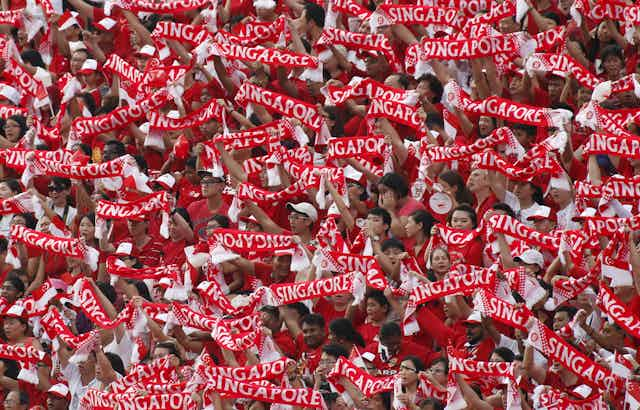Singapore’s recent general election found the ruling People’s Action Party (PAP) in rude health, winning the support of nearly 70% of voters and capturing 83 of 89 contested seats. The party managed to increase its share of votes despite unpopular policies and spiralling inflation.
The PAP is largely credited with taking Singapore’s economy to first-world status in its half-century of unbroken authoritarian rule – but all is not as rosy as it seems.
Rapid economic development has also made Singapore one of the most expensive cities in the world. Even public transportation and public housing, which the vast majority of Singaporeans rely on, have not escaped inflation.
Meanwhile, the government’s liberal policy on the intake of foreign workers, which have swollen Singapore’s population by 20% over the last decade, has led many to blame foreign residents for a wide array of grievances, from inflation to the overloaded capacity of public transport.
Due to these seemingly inexorable trends, the PAP’s support has shown signs of dwindling. At the 2011 election, the party won a relatively low 60% of total votes, and the opposition increased its parliamentary presence to five seats.
But in 2015, despite the ruling party increasing its popular vote, the opposition nonetheless won an additional seat in parliament, bringing their total number to six – a minor victory, but still the highest number of seats the opposition has ever won in Singapore’s parliament.
Sing it
Clearly, as 2015’s polls rolled around, the PAP realised it had to do something.
The first initiatives were a slew of new policies, such as increasing the supply of public housing, stricter rules to curb the inflated property market, and measures to cope with strained public transport. Yet the intended effect of these amends are hardly immediate, and more timely measures were required.
The solution was SG50, a series of co-ordinated national projects to remind Singaporeans of the country’s development, economic progress, and patriotism – all of which, the argument went, were grounded in to singular political leadership.
Backed by the state-controlled media – which covers TV, radio, and newspapers in four languages – the SG50 logo was omnipresent. Additional public holidays were announced, and various celebratory events were held by community organisations. Businesses were also roped in to cash in on the event, further entrenching the SG50 branding throughout the economy.
It even had its own theme song.
Among the critics, SG50 was naturally decried as a brazen campaign to claim sole credit for Singapore’s 50 years of progress via exuberant nationwide marketing and handouts of assorted “goodies”. Financial and healthcare aids were given to those who lived during the formative years of the nation, while civil servants received one-off bonuses.
While the National Day Parade – a major annual event consisting of uniformed procession and performances – commemorated the country’s anniversary, it also reaffirmed the narrative of Singapore’s “success story”, which ultimately credits the main protagonist in a one-party system. The convenient timing of the election just one month later would give additional advantage to the ruling party.
Coupled with the continuous tribute to Singapore’s first prime minister, Lee Kuan Yew, who died earlier this year, this ultimately handed PAP a vital sentimental edge over its competition.
But that doesn’t mean the PAP has a monopoly on public opinion and political debate in Singapore – or that things aren’t changing.
Online and off
In the run up to the vote, election-watchers paying attention to social media saw signs that the opposition would make significant gains.
They were disappointed, but even given the complex social media algorithms that might create something of an echo chamber, Singapore’s online public sphere is transforming the country’s political debate on both the government and opposition sides.

For the PAP, the constant discussion of various issues online has made them inescapable. After years of largely governing unchallenged, Singapore’s traditionally authoritarian political elite has no choice but to start addressing some of them.
The opposition’s limited resources, on the other hand, make social media a particularly crucial tool – but it’s clear that online zeal in itself is not enough to guarantee votes. After a lacklustre result at the ballot box, the test will be to translate online fervour into more diligent on-the-ground activism.
Issues prominently debated on the internet have become cornerstones of opposition party platforms, from the growing foreign workforce to the expansion of civil liberties to discrimination against Muslim women in Singapore’s uniformed services.
But still, real change is some way off. Clearly the mainstream media was not the only guarantor of the PAP’s electoral victory, but with the party’s experienced and robust election machinery in overdrive, it was simply too much for the opposition to get a real foothold. The internet might have amplified opposition voices, but for now, the advantage of incumbency and state resources is simply too great.

